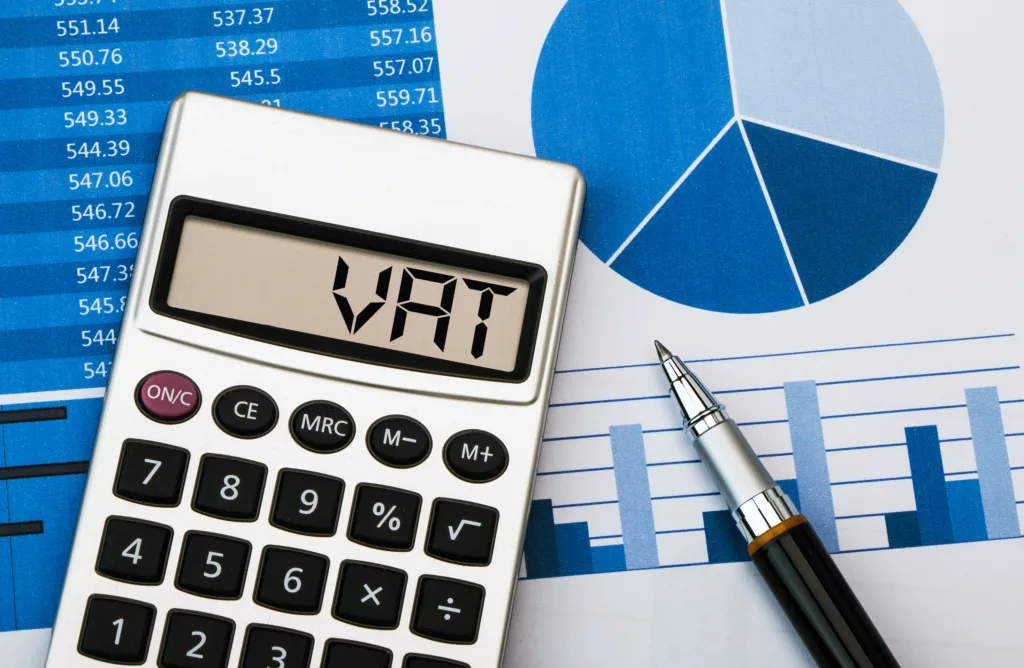Value Added Tax (VAT) is a cornerstone of Thailand’s taxation system, impacting a wide array of economic activities. Whether you’re a business operator or a foreign investor, understanding the intricacies of VAT in Thailand is essential. Let us take a look at a detailed exploration of VAT, its rates, requirements, exemptions, and implications for different stakeholders.
Overview of VAT
VAT is a tax levied on the consumption of goods and services. It applies at each stage of the supply chain, with the ultimate cost borne by the end consumer. Businesses act as intermediaries, collecting VAT on behalf of the government and remitting it to the Thai Revenue Department.
Read more: Introduction to Accounting
Current VAT Rates in Thailand :
- Standard Rate:
- The standard VAT rate is 7%, applicable to most goods and services in Thailand. This rate has remained steady in recent years, reflecting its importance to government revenue.
- Zero-Rated Transactions:
- Exported goods and certain international services are subject to a 0% VAT rate. This policy encourages Thailand’s position as a competitive player in global trade.
- Exemptions:
- Some categories of goods and services are VAT-exempt, including educational services, medical services, and unprocessed agricultural products. These exemptions aim to reduce the tax burden on essential services and goods.
Read more: A Guide to Withholding Tax in Thailand
VAT Registration Guidelines :
- Mandatory Registration:
- Businesses with an annual revenue exceeding 1.8 million Thai Baht are required to register for VAT. This ensures that larger enterprises contribute to the tax system.
- Optional Registration:
- Smaller businesses can opt to register voluntarily, enabling them to claim VAT credits and potentially streamline their financial operations.
- Application Process:
- Submit Form VAT 01 to the Revenue Department, accompanied by necessary documents such as business licenses and proof of address.
Filing and Compliance :
- Tax Invoices:
- VAT-registered businesses must issue proper tax invoices for all taxable transactions. These invoices must detail the VAT amount, the seller’s tax ID, and a description of the goods or services.
- Monthly VAT Returns:
- VAT returns are filed monthly, with payments due by the 15th of the following month. Businesses calculate their net VAT liability by subtracting input VAT (on purchases) from output VAT (on sales).
- Documentation:
- Accurate records must be maintained for a minimum of five years, ensuring transparency and readiness for potential audits.
VAT Refund Mechanisms :
- For Businesses:
- Businesses with excess input VAT over output VAT can claim a refund. This often occurs in export-driven industries or during significant capital investments.
Penalties for Non-Compliance :
Non-compliance with VAT regulations can lead to substantial penalties, including:
- Fines for late registration or filing.
- Surcharges for overdue payments.
- Legal action in severe cases of evasion or fraud.
Businesses must prioritize timely registration, accurate reporting, and adherence to deadlines to avoid these consequences.
Scenarios and Practical Applications :
- Export Business:
- A company manufacturing electronics for export can take advantage of the 0% VAT rate while claiming input VAT on raw materials sourced domestically.
- Retail Business:
- A clothing store collects 7% VAT on sales but offsets this with the VAT paid on inventory purchases when filing returns.
FAQs :
- Can businesses operating online register for VAT in Thailand?
- Yes, online businesses are subject to the same VAT requirements as physical establishments if their annual turnover exceeds the registration threshold.
- What happens if a business’s turnover fluctuates around the registration threshold?
- Businesses must monitor turnover closely and register for VAT promptly once the threshold is exceeded.
Conclusion
Understanding VAT in Thailand is vital for efficient financial management and compliance. Whether you’re a business owner navigating monthly filings or a tourist seeking a refund, staying informed ensures smoother interactions with the taxation system. By adhering to VAT regulations, stakeholders not only avoid penalties but also contribute to Thailand’s economic growth and stability.
If you are in need of accounting, tax filing, company registration, or other related services, please feel free to contact us. We would be happy to assist you. – Bangkok Accounting Office(2009) Ltd.

